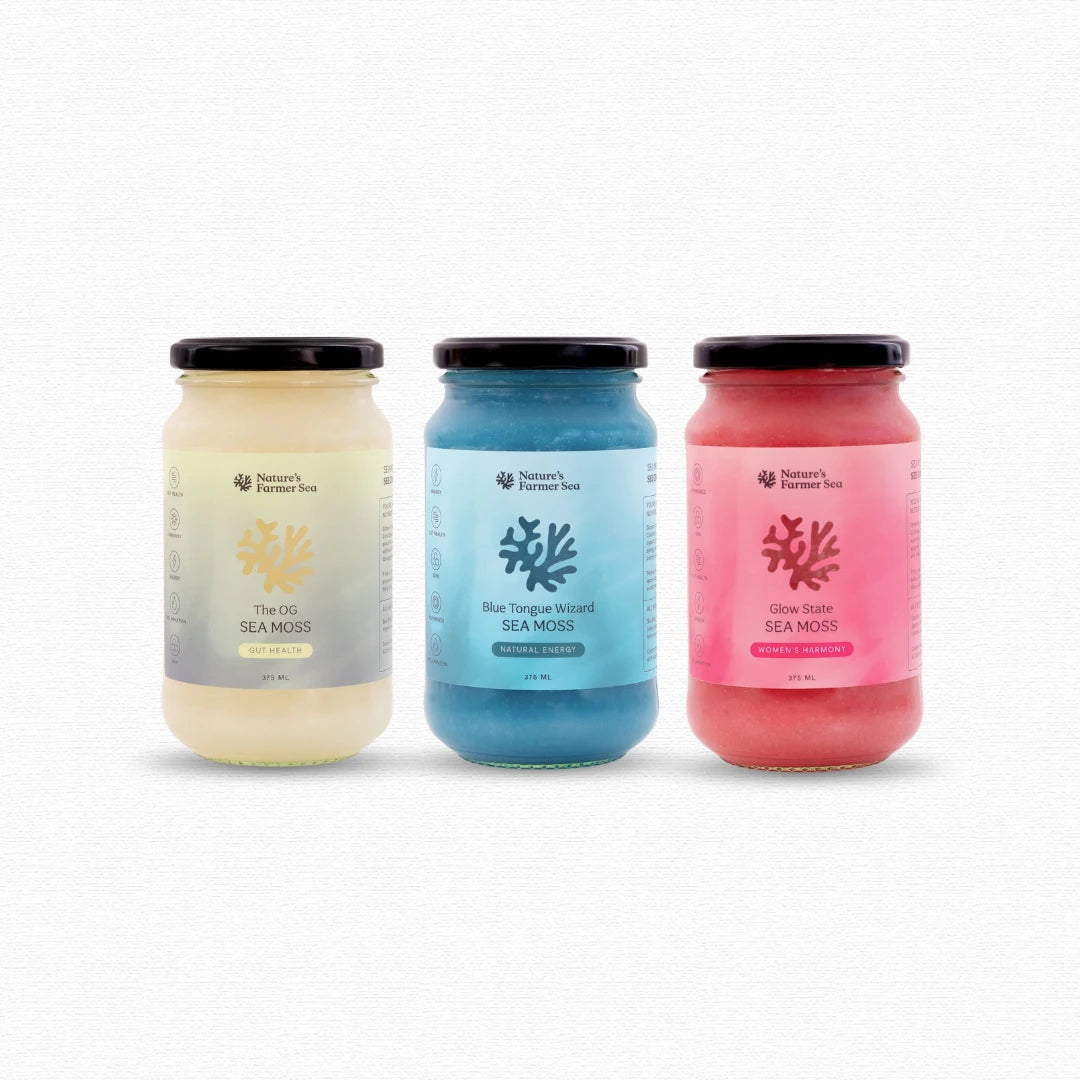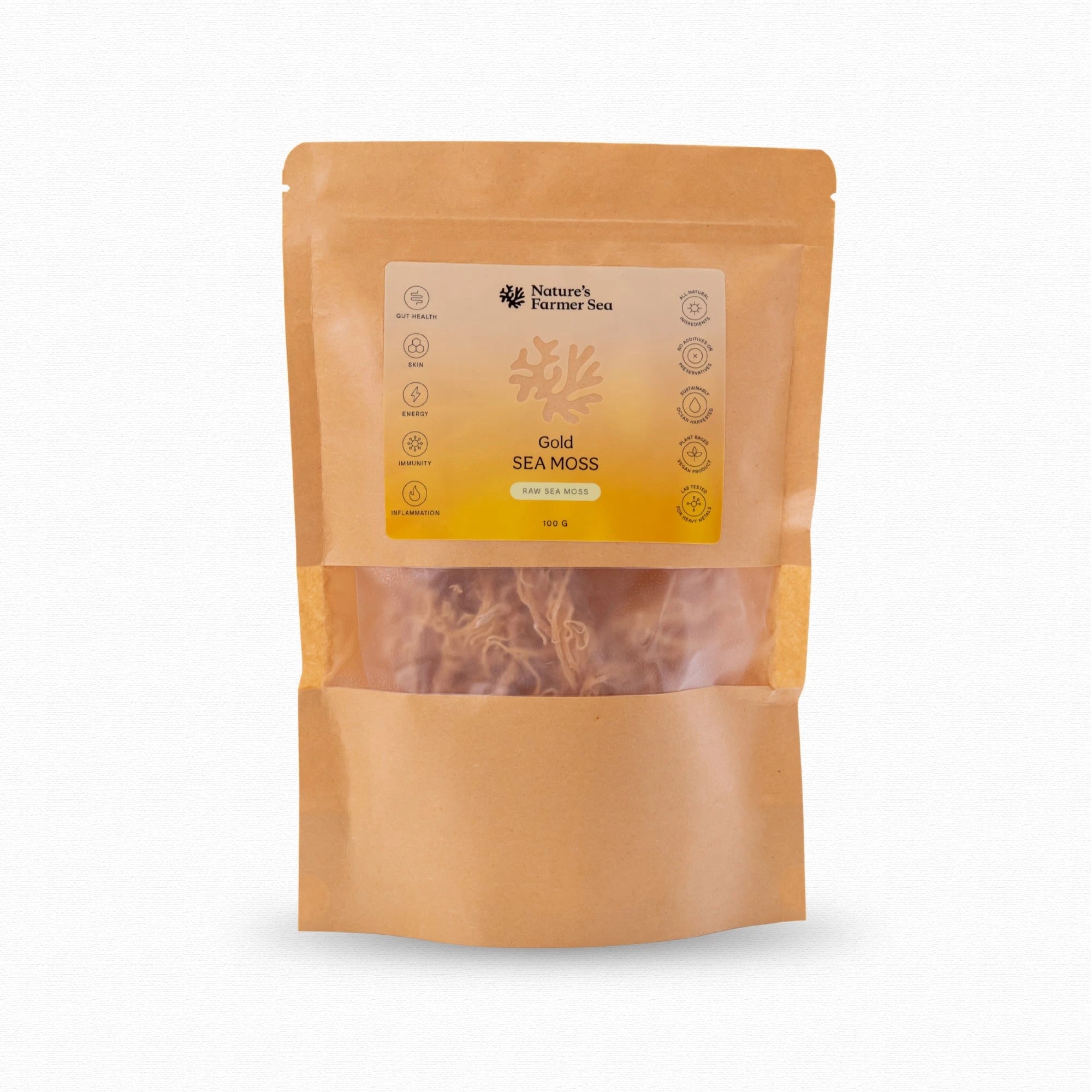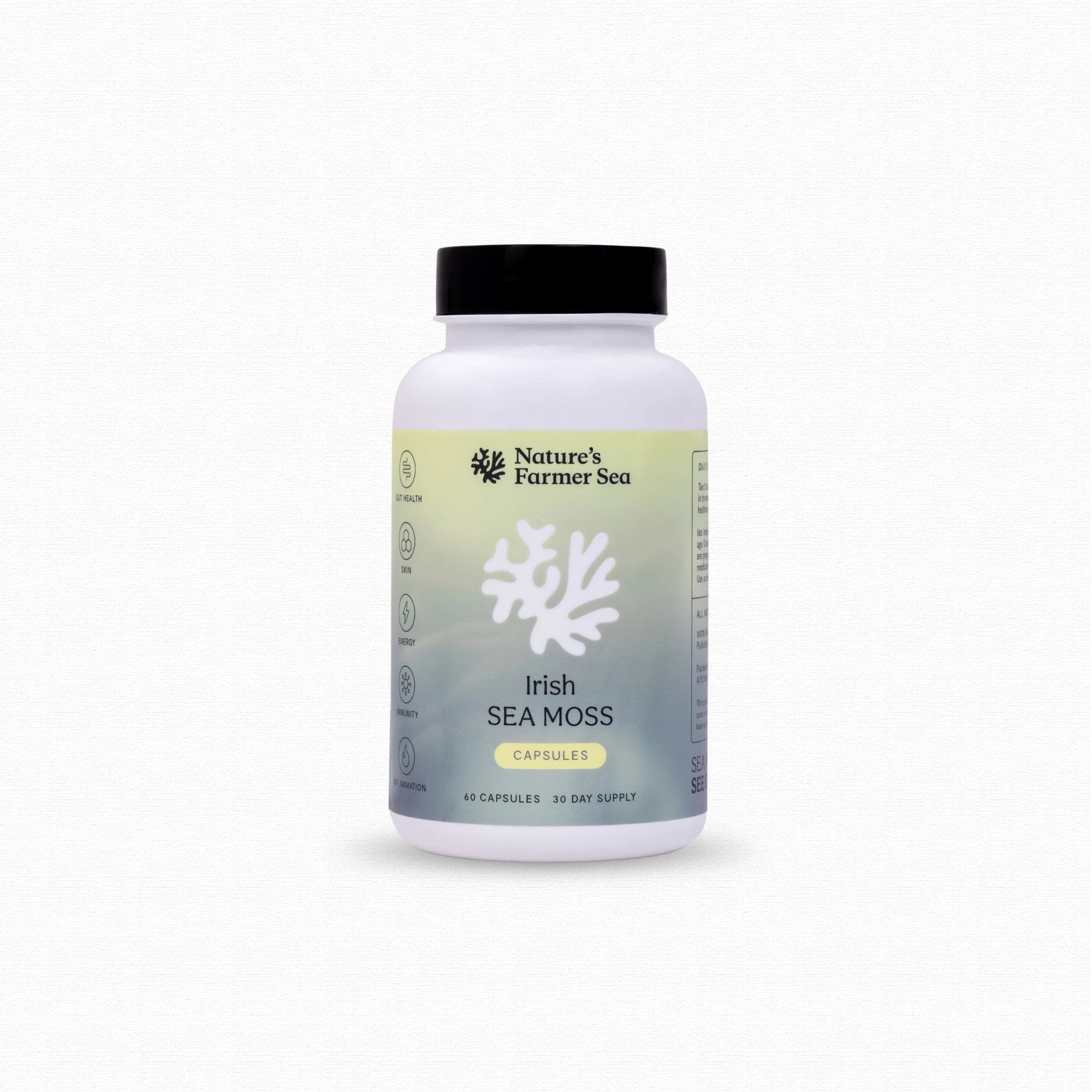Spring has officially sprung in Australia, painting our world with its vibrant hues, but unfortunately for some, ushering dreaded seasonal allergies and hay fever, unwelcomed with symptoms of itchy eyes, runny noses and congestion which puts a damper on enjoying the warmer weather. However, at Natures Farmer Sea, we offer a refreshing, all-natural solution in the form of our sea moss gels to ease the discomfort caused by seasonal allergies and hay fever.
Sea moss, scientifically known as Eucheuma Cottonii, is well known, and researched for its rich mucilage content. Mucilage is a substance that transforms into a gel-like consistency when soaked in water. This unique property has been linked to its potential to soothe irritated mucous membranes in the nasal passages and respiratory tract. For individuals suffering from hay fever, this could translate to relief from congestion, a runny nose, and other related symptoms. The mucilage in sea moss may help create a barrier that shields the mucous membranes from allergens, reducing their impact and providing much-needed comfort during allergy season.
Seasonal allergies and hay fever can cause itchiness of the skin, eyes and/or a flare-up of eczema. Sea moss, when applied topically, offers a natural remedy to address these issues.
The aforementioned mucilage present in sea moss can also lock in moisture when applied topically to the skin and have soothing properties that can help calm irritated and inflamed skin. This moisturizing effect helps soothe dryness and irritation, working to restore the skin's natural moisture barrier. By forming a protective layer, sea moss may alleviate the discomfort associated with itchy skin and promote overall skin health.
We have a beautifully intricate connection between our gut microbiome and our immune system which has been extensively researched. Sea moss has positive effects on this axis through enhancing the abundance and composition of our gut microbiota. Sea moss is rich in soluble fibre, which serves as fuel and nourishment for beneficial gut bacteria through fermenting in the colon, and producing short-chain fatty acids (SCFAs) as by-products. SCFAs have multiple health benefits, including supporting the growth of other beneficial bacteria, maintaining gut barrier integrity, and reducing inflammation.
A balanced and diverse gut microbiota is essential for modulating the immune system's response to potential allergens. By fostering the growth of healthy gut bacteria, sea moss indirectly supports the immune system in managing allergic reactions.
As spring unfolds, the battle against seasonal allergies and hay fever doesn’t have to be a challenging one when you have Natures Farmer Sea to support you. Sea moss emerges as your natural assistant, offering a multi-faceted approach to alleviate the discomfort caused by these allergies. Through its mucilage content, sea moss has the potential to soothe irritated respiratory passages and alleviate congestion. Its moisturising properties provide relief from itchy skin and eczema when applied topically. Furthermore, sea moss supports a healthy gut microbiota composition, contributing to immune resilience against allergens.
Check out our OG Sea Moss gel and get on top of your allergies:
References:
Rudtanatip, T., Lynch, S. A., Wongprasert, K., & Culloty, S. C. (2018). Assessment of the effects of sulfated polysaccharides extracted from the red seaweed Irish moss Chondrus crispus on the immune-stimulant activity in mussels Mytilus spp. Fish & shellfish immunology, 75, 284-290.
Lomartire, S., Marques, J. C., & Gonçalves, A. M. (2021). An overview to the health benefits of seaweeds consumption. Marine Drugs, 19(6), 341.
El-Beltagi, H. S., Mohamed, A. A., Mohamed, H. I., Ramadan, K. M., Barqawi, A. A., & Mansour, A. T. (2022). Phytochemical and potential properties of seaweeds and their recent applications: A review. Marine Drugs, 20(6), 342.
Choudhary, B., Chauhan, O. P., & Mishra, A. (2021). Edible seaweeds: a potential novel source of bioactive metabolites and nutraceuticals with human health benefits. Frontiers in Marine Science, 8, 740054.




